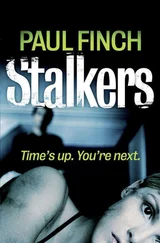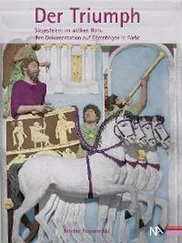His family were not sympathetic after he dropped out and Chapman, twenty-one years old at the time, found a job as a security guard to support himself. He was given some rudimentary training in the use of a pistol; Chapman proved to be a good marksman. But being a security guard was, he felt, only a stop gap, and in a desperate bid to get some better qualifications he enrolled once more in college. When he failed to keep up with the academic work once again he felt a complete failure, and decided that he would end his own life. But he wanted to do it in style and in his own time; he had read somewhere that the Hawaiian islands were as close to paradise as you can get on earth, so he decided to commit suicide only after he had visited them.
Six months later, having travelled all around the islands, he decided that the appointed time had come, and fixed a hosepipe from the exhaust of his car. But he was no more competent at suicide than he was at college work; he was found and taken to hospital. After his physical problems were sorted out he was transferred to a psychiatric ward where he was treated for severe neurotic depression, a diagnosis which shows how clever he was at masking the extent of his symptoms, because by this time Chapman was certainly psychotic. He was preoccupied by the fight between God and the devil, which he hallucinated about constantly. He believed his brain could pick up the commands of the opposing armies, so that he refused a confusion of signals urging him to do good and then to do evil.
Perhaps he recognized his own need for help and treatment: when he was discharged he took an undemanding clerical job in the hospital and worked as a volunteer in the psychiatric unit. He saved his earnings assiduously, and started to plan a six-week holiday, in which he intended to see as much as possible of the world. The travel agent who helped him plan his holiday, which started in Tokyo, was a Japanese girl working in a Honolulu agency. She was the daughter of a prosperous baker. While he was away Chapman sent her postcards, and when he returned they started going out together. Gloria was a Buddhist who believed in fortune-telling and astrology, a combination at odds with Chapman’s born-again evangelical Christian faith, but theirs was a genuine romance and in June 1979 they were married.
Gloria had a comfortable life; her father was wealthy and she had her own salary. Chapman, who was still working at the hospital, began to enjoy a lifestyle he had never previously aspired to. He harboured dreams of grandeur, seeing himself as an art connoisseur. But his taste in pictures was esoteric and no doubt governed by the religious battleground his brain had become; he coveted a Salvador Dali representation of the crucifixion of Christ overlaid with the assassination of Abraham Lincoln. Death was becoming a fixation of his.
By the time he had been married for six months, Chapman had walked out on his job at the hospital in a fit of pique because he did not get a promotion he wanted. He became a security guard again: it was a job which gave him less responsibility and paid him less money, and he recognized it as a downward step. Money was no problem, though, because he had access to a shared account with Gloria.
For the whole of 1980 Chapman’s behaviour was odd, although obviously not odd enough to alert anybody. He bullied Gloria, was inordinately possessive about her, and was extravagant with their money, spending far more than he contributed to the household. Opposite the apartment where he and Gloria lived was an office of the Church of Scientology, a cult which recruits with promises of self-improvement. Chapman disapproved of the organization, and could be seen marching up and down repeatedly outside their offices, muttering to himself. The office began to receive threatening phone calls, sometimes as many as forty in a day. The phone would ring, the receiver be picked up, and a male voice would whisper ‘Bang, bang, you’re dead.’ Chapman later admitted he was the caller.
At home Gloria was becoming increasingly worried about him. He had always played lots of Lennon music, but the signs were there that he was developing into more than a fan. In August he wrote to a friend, said he was going to New York on a mission, and gave his address as the Dakota. His beloved Bible had an addition that he had scrawled in himself: ‘The Gospel According to John’ became ‘The Gospel According to John Lennon’. He read everything he could get his hands on about the star. After reading the Esquire article in October, his attitudes to Lennon hardened. He would sit in a darkened room, naked, in the lotus position, listening to speeded-up Beatles and Lennon tapes, and chanting ‘John Lennon, I’m going to kill you.’
‘It was hideous,’ he said later from his prison cell at Attica, ‘I would strip naked, gritting my teeth and summoning the devil and wild things into my mind. I was sending out telegrams to Satan, “Give me the opportunity to kill John Lennon.”’
He had, he would reveal later in prison, already thought about and discounted killing Jackie Onassis, Ronald Reagan, David Bowie and Elizabeth Taylor, among others. But once he hit on Lennon, everything he read and heard about the man whose music he revered confirmed that Lennon was ‘a phoney’. There was a time when Chapman’s delusions made him believe he was Lennon: when he gave up his job on 23 October he signed off as John Lennon, then scored the name out. But more telling, and more fundamental, was the belief that he was Holden Caulfield, The Catcher in the Rye.
Four days after finishing at work, Chapman bought a gun. It was not hard. He walked into a shop in Honolulu where the slogan above the door said ‘Buy a gun and get a bang out of life’ He paid $169.00 for .38 calibre pistol, which he chose because it was small enough to conceal in a pocket. He flew to New York on a one-way ticket, telling his wife Gloria that he was going ‘to make things different’. Arriving on 30 October, he became Holden Caulfield, retracing his fictional hero’s steps through the city with his well-thumbed copy of The Catcher in the Rye in his pocket. He went to the spots in Central Park that Salinger mentioned in the book and he went to the Museum of Natural History, another place Caulfield visited.
In between his pilgrimages, he joined the small knot of fans who hung around the Dakota building, hoping for a glimpse of their idol. He moved hotels, to be nearer to his stakeout, never giving any clue to the others that he was any different from them in his devotion to the star. He was even ‘normal’ enough to go out on a date with a girl he met in Central Park, where she worked in a café. The only clue she had about his state of mind came when he angrily lashed out at New York gun laws: he had discovered he could not buy bullets in the city. He contacted an old schoolfriend, a policeman back in his home state, Georgia, who agreed to supply him with ammunition. He flew to Atlanta to collect five hollow-nosed dumdum bullets.
Back in New York, Chapman was listening hard to the warring factions in his head. One side told him to kill Lennon, the other told him not to. The first victory went to the goodies: he phoned Gloria in Honolulu and told her that coming to New York had been a mistake. He revealed to her that he had been on a mission to kill Lennon – it was the first she had heard of his plans – but that he had won ‘a great victory’ and was on his way home. For three weeks he sat around the Honolulu apartment watching television. On the wall of the apartment was a plaque inscribed with the Ten Commandments, and as he walked past it Chapman saw ‘Thou Shalt Not Kill’ leap out at him; a sign, he believed.
But the battle was still raging and he needed to get back to New York, to be near Lennon. He told Gloria that he had thrown the gun and the bullets into the sea, and that she was not to worry that he would do anything silly. He even made an appointment with a psychotherapist who had treated him before for depression, but he never turned up. When he should have been getting professional help coping with his delusions, he was on a plane to New York.
Читать дальше












